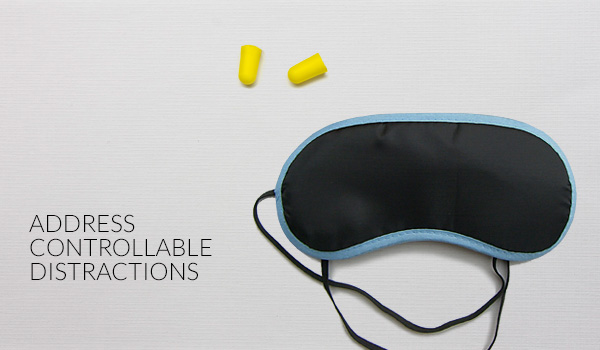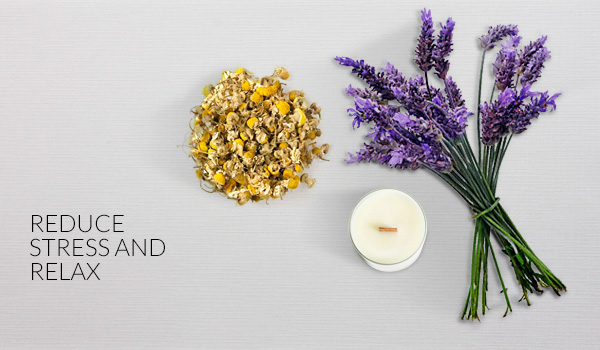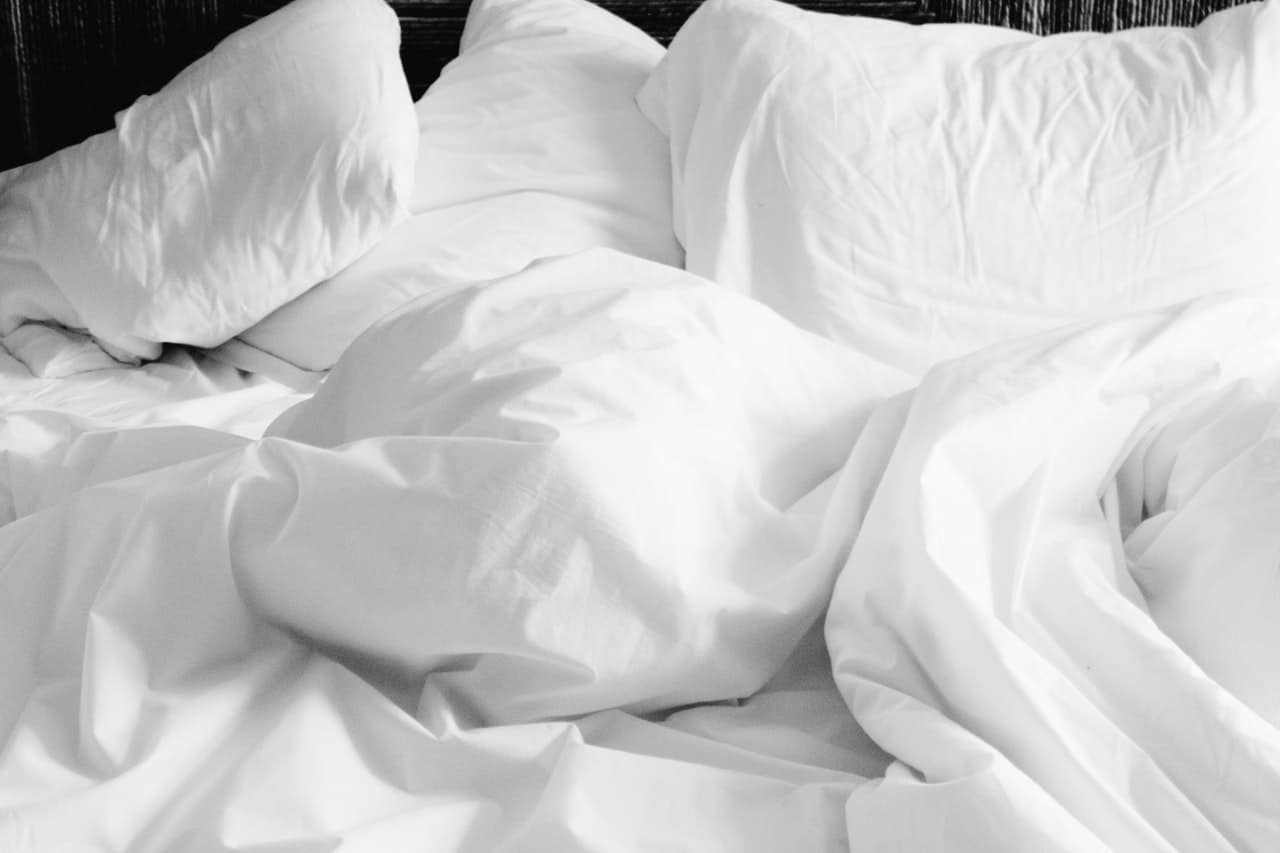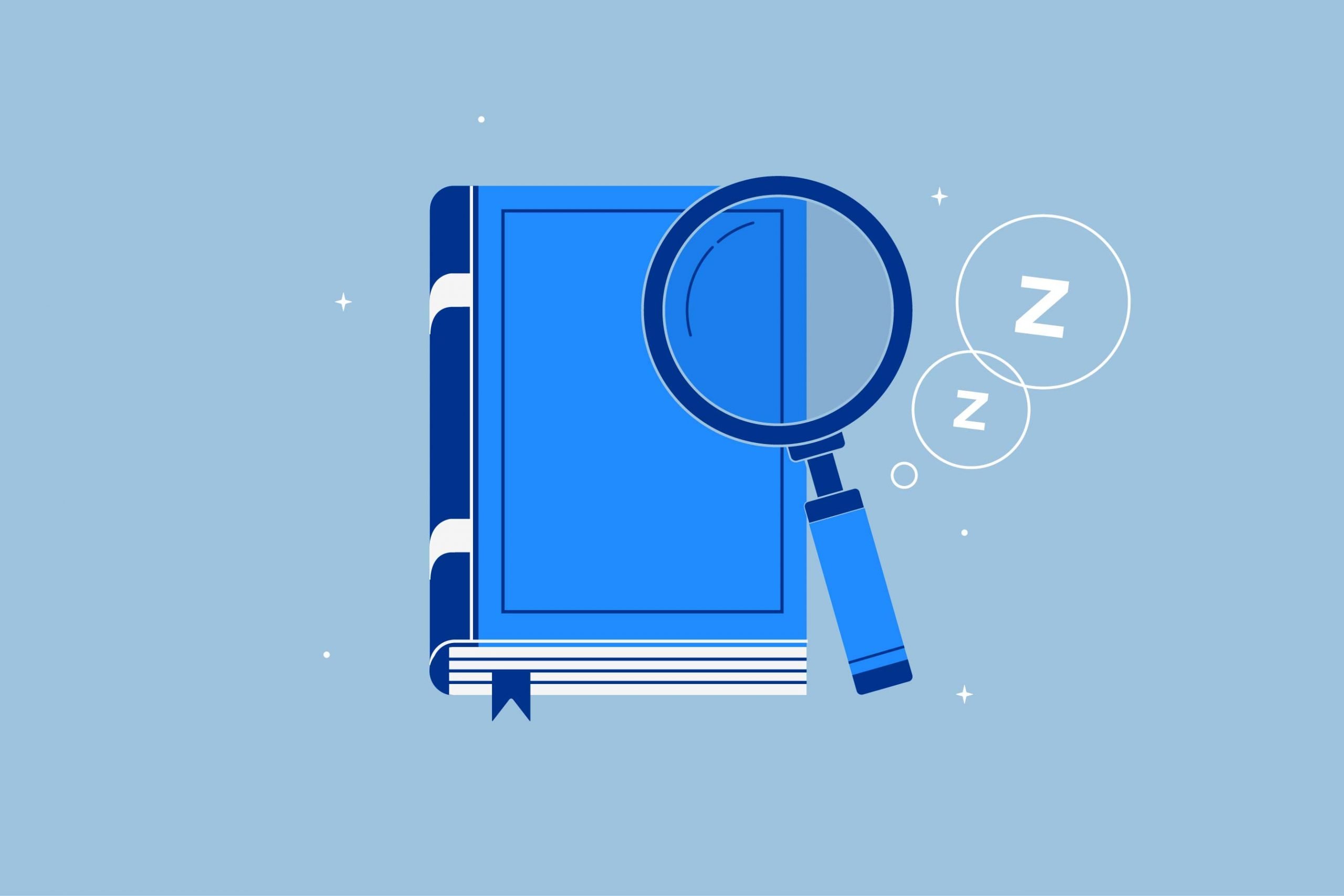Sleep is a basic function of life – we all need it and we all do it. Yet for something so seemingly simple, getting good sleep on a regular basis proves challenging for many us.
Luckily, given its crucial importance to health and well-being, the subject of how we can all get better sleep is an important one for researchers. The concept of “sleep hygiene” refers to the collective behaviors and habits that have been found to promote better rest.
Ranging from how you schedule your day to the conditions of your bedroom, there are quite a few things you can do to increase your odds of sweet dreams and break cycles of sleepiness. Read on to learn dozens of proven strategies you can implement tonight to start experiencing better sleep.
Back to Sleep Basics

The foundations of getting better rest involve understanding how much sleep your body needs and learning to prioritize it your routine.
1. Know How Much You Need
Eight hours of sleep is the well-known standard, but there’s there's actually some variation Verified Source National Sleep Foundation Nonprofit focused on educating about sleep health. View source in how much you may need to feel your best. Some people feel peppy on six to seven hours, while others may need up to nine hours to feel well-rested.
If you haven’t found your sweet spot yet, start with seven hours, see how you feel, and work up from there if you need more rest.
2. Make a Sleep Plan
A big part of developing healthy sleep habits is consistency. Research shows Verified Source Oxford Academic Research journal published by Oxford University. View source people who sleep and wake around the same time every day (especially kids, teens and younger adults) are less likely to have sleep problems, and consistency has even been linked with healthier body weight. Having an established bedtime and waketime that gives you adequate sleep time is important for keeping yourself consistent and avoiding weekday jet lag.
Start by setting your wake up time. When do you need to be up by in order to start your day comfortably (not in a stressed rush)? Try to pick a time that you will be able to stick to within 60 minutes, even on the weekends.
Then, work backwards by the amount of sleep you need, and add an extra 30 minutes to give yourself adequate time to fall asleep. It takes the average person at least 15 to 20 minutes to fall asleep once in bed, so it’s important to factor that in. A little wiggle room can keep you from feeling stressed about the clock and the need to fall asleep quickly. For example, if you want to wake at 7 AM, that means you might plan bedtime around 10:30 to 11:30 PM.
3. Have a Relaxing Routine
In the hour or 30 minutes before bed, it can be helpful to follow a regular pre-bed routine. Getting in this habit lets your mind and body know that sleep is coming soon.
Your routine should focus only on things that make you feel good and calm. Nothing stressful like bill paying, work, emotional talks or violent or exciting shows or games. Follow a predictable pattern as often as you can, and just like your sleep schedule, try to do it around the same time.
Perhaps your routine could involve laying out tomorrow’s outfit, brushing your teeth, doing a face mask, some light stretching, a little reading or sketching — any low key activities that work for you.
4. Prioritize Snoozing
If you struggle with sleep, it really is important to make getting rest a conscious priority. Getting a good night’s slumber is more beneficial than a late night Netflix binge or another round of Candy Crush. Remind yourself that you’ll wake up with a clearer head, better looks, a better mood or better health — whatever is important and motivating to you.
In the 2015 Sleep in America poll by the National Sleep Foundation, Verified Source National Sleep Foundation Nonprofit focused on educating about sleep health. View source stress and pain were found to dramatically affect sleep. However, stress and pain sufferers who said they made sleep a priority reported longer sleep and better sleep quality than those who did not. If looking to focus on getting a good snooze, look for the best mattress for back pain.
5. Set Aside Time for Make-Up Sleep
While the concept of “sleep debt” isn’t entirely understood, recharging after nights you’ve skimped on slumber can be helpful for bouncing back.
Kelly Bulkeley, Ph.D., Director of the Sleep and Dream Database, says, “One of the most surprising findings of modern sleep science is the power of the “rebound effect.” If we don’t get enough sleep one night, we tend to sleep extra long and deep the next night. This finding has useful implications for people in present-day society.”
He adds, “Sometimes it’s impossible to avoid a few nights of shortened sleep for work, family, or other reasons. The best thing people can do in these situations is make sure they get plenty of “rebound” sleep when the time comes, by going to bed extra early and/or sleeping in later than usual. By taking advantage of the rebound effect, busy people can maximize the overall benefits of sleep.”
In terms of the best way to get makeup sleep, it’s thought to be less impactful on your sleep cycle to head to bed earlier and then wake up at your normal time, if possible. But since many people can experience “sleep onset insomnia” when trying to sleep earlier than usual, mid-afternoon naps can also be helpful.
Just try not to throw off your regular sleep schedule too often, or you’ll find yourself wondering why you’re sleeping in so late.
Address Controllable Distractions

There are quite a few potential sleep stealers in your home and bedroom that can make it harder to fall asleep or stay asleep. Keep an eye out for these common and often easy to fix environmental factors.
6. Reduce or Diffuse Noise
Some of us can easily sleep through a concert, while others awake at slightest creak or breeze. If you fall into the light sleeper group, ambient noise or earplugs may prove helpful.
Sound conditioners, fans, white noise machines, and even apps that play nature sounds help diffuse background noises and prevents those bumps in the night from bothering you. Ambient noise may also be useful for drifting off if silence sends your mind running.
The other option is earplugs, which are ideal for people who find any noise distracting. If you’re weary of earplugs or headphones and waking up on time, a vibrating phone or wrist alarm could give you some peace of mind.
7. Determine the Best Arrangement
Many people find comfort sleeping near their significant other, and it’s also often reported as a sign of a healthy relationship. But, sometimes coupling up can mean sleeping less, which can in turn cause more fights, bad moods, resentment and other undesirable things.
Mathias Basner, MD, PhD, MSc, associate professor of Sleep and Chronobiology in Psychiatry at the University of Pennsylvania Perelman School of Medicine, shares, “An early study on the effects of aircraft noise on sleep found that sharing the bed with somebody caused more sleep disturbance than the outside noise,” he suggests. “If your bed partner turns or snores frequently, you may briefly wake up multiple times during the night. Even if you do not wake up consciously (i.e., you cannot recall these episodes in the morning), your sleep may be less restful. If you have tried everything else, try sending your partner to sofa exile for a week, and see if it makes a difference,” he added.
In addition to snoring, some people are easily awakened, have different schedules, and can have different comfort preferences. If you’re not sleeping great, bring it up with your partner and see if you can find a solution that works for both of you. Heavy snoring can also be a sign of sleep apnea, another reason to discuss it (kindly) with your partner.
8. Keep Rooms Dark at Night
Light plays a significant role in our internal circadian rhythms, by affecting the mechanisms that govern drowsiness and wakefulness. Your body is generally geared to get sleepy in the dark and active in the light.
Most sleep professionals suggest keeping the bedroom as dark as possible at night, including turning off all electronics, clocks and lamps. For people who live in cities, dark drapes or light blocking shades can minimize outside light from windows.
Blackout shades or m may be even more important if your sleep schedule involves sleeping much past sunrise, as the bright sunlight could make the last couple hours of your sleep less restful.
9. Use Dim Lights in the Evening
To further use lighting to your advantage, start dimming down in the couple of hours leading up to your bedtime. Turn off bright fluorescent or halogen bulbs and opt for dim lamps in living areas and bedrooms instead.
Having a dimmer switch installed or using a lamp with a “smart” lightbulb would allow you to gradually taper off the light closer to bed and even change the hue, helping to encourage natural drowsiness.
Lightbulb tips:
- Choose bulbs that say warm or soft.
- Look for Kelvins under 3000. Color is given in Kelvins. Lower Kelvin temperatures are dimmer and yellower, while higher Kelvin temperatures are brighter and bluer thus less ideal for sleep.
- Look for lumens under 450. Brightness is given in lumens. Lower lumens are dimmer and better for evenings, while higher lumens are better for daytime and workspaces.
10. Put Your TV To Bed Early
Watching a few shows on TV is a common evening routine for millions of people, and while entertaining and often relaxing, it may not the best thing to do right before bed. The cool glow of your TV screen delivers melatonin-suppressing blue light which may keep you up longer than intended.
Shows that have you on the edge of your seat can also be hard to turn off when bedtime comes. Others with emotional or frightening content can cause anxiety or stress, even for adults, which can make it harder to feel calm and peaceful.
Try to keep shows light hearted in the hours before bed, use the dimmer function if your TV has it, and have a set off time that’s at least 30 minutes before your bedtime. Sleep experts generally recommend not having a TV in the bedroom at all, especially for children’s rooms.
11. Banish Smartphones
Smartphones and tablets deliver sleep stealing blue light as well, and their impact may be even greater than TV since you tend to hold them quite close to your face.
Beyond light, smartphone distractions are virtually unlimited between games, social media, texting, emails and late night reading. In one survey, Verified Source National Sleep Foundation Nonprofit focused on educating about sleep health. View source up to 20% of younger adults admitted to waking up multiple times per week due to disturbances from their phones and 26% admitted to texting or emailing after initially going to sleep in the 2014 poll. Teens in particular are more likely to lose sleep to smartphones.
Leave phones outside of the bedroom, or at the very least, put them in silent mode facedown to minimize disruptions. Some phones and apps also have do not disturb functions that can be helpful.
12. Don’t Hang Out in Bed
According to most sleep hygiene sources, beds should only be used for sleep and getting intimate. This way, your brain associates your bed with sleep and sleep alone, not with gaming, watching TV, eating or other activities.
Getting used to the habit of working, web surfing or studying in bed can also make it harder to turn off stressful thoughts and pressing to-dos when you’re ready to go to sleep. It’s best to keep waking activities in another room, or have a separate desk or comfy chair in your bedroom.
13. Give Pets Their Own Beds
Pets are comforting and cozy, and many people enjoy snuggling up with Fluffy and Fido at bedtime. However, it might not be so great for your sleep.
Pets can be fidgety and hot, even obnoxious at times, and they can indeed wake you up at night and affect sleep quality. If you have allergies, they also track dander, dirt, outdoor debris and other not so cozy things into bed with them.
A better solution is to have separate pet beds so everyone can get great rest. You can even make it a DIY project using your old clothing or bedding so they have something comforting to snuggle up up with.
Keep a Pro-Sleep Environment

Small things in your environment can affect comfort and rest, even if they aren’t obviously distracting. Clean and comfortable bedrooms simply invite better rest.
14. Sleep Cool
The ideal temperature for sleep according to research is in the neighborhood of 60 to 70 degrees. There is some variance for personal preference, but generally cooler temperatures are best for maintaining restful sleep.
Our bodies natural see a temperature dip at night, so it’s thought that being too hot might work against this effect and prevent deeper sleep. Adjust the thermostat and see what works for best for you. If you and your partner have significantly different preferences, using different blankets or a dual-sided temperature control device could help keep the peace.
If you’re looking for a memory foam mattress, make sure it’s one that uses advanced open-cell foam to promote airflow and help you sleep cool throughout the night. Cheaper foams restrict airflow and can cause you to sleep in a heat trap.
15. Use Breathable Bedding
Breathable fabrics like cotton and wool help balance temperatures and wick away moisture, so you’re less prone to overheat or feel too cool. Some synthetics like polyester can keep heat and moisture in, making sleep unpleasant. If you find yourself tossing covers off mid-night or waking in a sweat, make sure your bedding or pajamas aren’t the culprit.
16. Green it Up
A few plants can go a long way toward freshening indoor air, giving you a cleaner place to snooze. Some of the best at purifying indoor pollutants are chrysanthemums, English ivy, snake plants, Boston ferns, and spider plants. Aloe and snake plants also give off extra oxygen at night, perfect for bedrooms.
17. Stay Clutter Free
Even if you’re not a neat freak, you have to admit there’s something very serene about a clean and tidy bedroom.
While most of us unfortunately don’t have nightly cleaning and turndown service at the ready, taking a couple of minutes for a quick tidy up isn’t a bad idea. A clothes hamper, a catch-all storage bin and nightstands with drawers can make quick work of daily clutter.
18. Dust and Vacuum Regularly
Dust, dust mites, shed skin cells and dirt are a fact of life. Bedrooms tend to see more of this than other rooms, since we spend so much of each day in them.
Breathe easier at night by giving your carpet and any upholstery a vacuum every week or two, and consider vacuuming the surface of your mattress at least monthly to keep it clean and healthy. This is especially important for people with allergies and asthma, who might experience shortness of breath when allergens build up in the home!
For more tips on how to manage breathing difficulties in your bedroom, we suggest reviewing our tips for sleeping with asthma.
19. Wash Linens Weekly
Washing sheets and making the bed can be a bit of a pain, but slipping into a clean and fresh bed is well worth it. Between all of the oils, sweat and skin cells your body sheds at night, not to mention dirt from the day, food and other things your bed sees, sheets can get quite grimy and even downright unsanitary.
A National Sleep Foundation poll Verified Source National Sleep Foundation Nonprofit focused on educating about sleep health. View source found that the majority of people are more excited to get to bed and more comfortable with fresh sheets, and people that make their beds nightly also were more likely to report better rest.
20. Replace Pillows and Mattresses on Time
Your mattress and pillows provide your body support as you rest, and they are an important part of the sleep equation. A bed that’s no longer supporting you or is of an incompatible firmness can contribute to pain and restless nights.
The average mattress lasts eight to ten years, so if your’s is older or you seem to be noticing better sleep in hotels or away from home, it might be time to replace. In one National Institute of Health study, Verified Source National Library of Medicine (NIH) World’s largest medical library, making biomedical data and information more accessible. View source people sleeping on older mattresses (9.5 years on average) showed better sleep quality and less pain after swapping to new beds.
Implement Healthy Lifestyle Habits

Another important part of making better sleep a regular part of your life is adopting good habits during the day. Certain things we do can help lower stress, support circadian rhythms, and prevent common sleep problems.
21. Streamline Your Morning Routine
Rushing around in the morning and constantly running late can contribute to quite a bit of stress. Tackling chores like prepping outfits and lunches or doing some of your grooming at night can mean more sleep and more relaxed mornings.
Dr. Mathias Basner says, “One waking activity that may shorten sleep in major ways is time spent in the bathroom each morning. As many people have to show up at work at a certain time, those who spend prolonged periods of time in the bathroom can only take that extra time away from sleep. If you find ways to shorten time spent grooming and commuting, sleep time is likely to increase, and so are the associated positive effects on cognitive performance, mood, creativity, and health in general.”
22. Get Some Sun
Just like darkness supports drowsiness at night, getting bright sunlight supports wakefulness during the day. Evidence shows that sunlight helps regulate circadian rhythms, and that people working near windows caught more sunlight and got better sleep. Direct sunlight exposure also supplies vitamin D, which plays a role in sleep via hormones and neurotransmitters.
23. Exercise Often
Regular, moderate-intensity cardio exercise has been shown to help with insomnia. While it takes some time to see results, people in one study showed improvements similar to those received from sleep aids.
Exercising in the morning is generally considered ideal, but afternoons and early evenings are perfectly fine too if that works for you.
24. Stop Caffeine After Lunch
It’s estimated that over 90% of Americans consume caffeine daily, between coffee, soda, tea, energy drinks and more. And while coffee does help give us energy and coffee and tea do have potential health benefits, it can also contribute significantly to insomnia.
The effects of caffeine last around six hours, but it can take up to 12 hours to fully be processed by the body. Sensitivity varies too. Some people can drink an evening espresso and snooze just fine, while for others even having caffeine at lunch could still leave a buzz. If you find yourself feeling wired come bedtime, try scaling your caffeine use back and switch to non-caffeinated drinks by lunchtime.
25. Get Your Water in Earlier
Sipping plenty of plain, pure water was linked with healthier sleep in a large survey Verified Source National Library of Medicine (NIH) World’s largest medical library, making biomedical data and information more accessible. View source of diet and habits, and staying hydrated is undeniably good. But, try to get more of your water requirements met earlier in the day, especially if you find yourself getting out bed often to use the bathroom.
26. Keep Naps Short
Naps have quite a few benefits, from boosting alertness and learning to lowering stress. But there are a two important keys to napping successfully: keep naps short and time them right.
Naps should be less than 30 minutes so that they don’t cause grogginess. The best time to nap is around your natural midday energy dip, usually around 1-3 PM. Napping any later or for a long time could affect nighttime sleep and is generally not recommended by sleep experts for those who struggle with insomnia.
27. Limit or Quit Cigarettes
Nicotine is a stimulant, and smoking close to bedtime could you leave you feeling buzzed and a little restless. Habitual smoking also affects sleep Verified Source Medline Plus Online resource offered by the National Library of Medicine and part of the National Institutes of Health. View source in other ways. Smokers can go through withdrawal symptoms while asleep, disturbing deep rest. It can also cause smokers to wake up earlier than they’d like to get their nicotine fix.
28. Be Mindful of Supplements
There are quite a few supplements and over-the-counter medicines that can have a stimulating effect on the body. Others can cause vivid dreams that may disturb sleep, contribute to snoring, or otherwise impair rest.
Some common ones to watch out for close to bed (always follow doctor’s directions of course) include:
- Ginseng
- Guarana (and other caffeine sources like Green Tea extract)
- B vitamins
- Diet pills or pre-workout drinks with caffeine and other stimulants
- Cold medicines (especially ones with pseudoephedrine or sugars)
- Pain killers with caffeine
- Antihistamines (both sedative and non-sedative types)
- Certain prescriptions, including steroids, corticosteroids, alpha blockers, beta blockers, opioids, SSRI antidepressants, antihistamines and others
29. Don’t Overdo Dinner
Eating a great meal can set the tone for a nice, relaxing night but eating too much or too close to bedtime can affect rest as your body digests food. Spicy foods, very heavy or fatty meals, or foods that upset your stomach are generally best to avoid in the evening.
30. Avoid the Post-Dinner Doze
Do you tend to nod off in front of the TV after dinner, only to struggle to fall asleep in bed later? For many people evening naps can have this effect, especially if they run longer than a few minutes. This can lead to less overall rest, or waking up much earlier than you’d like in the morning.
Instead of hanging around the TV after dinner, try taking a walk, working on a hobby or doing another activity that will keep you from dozing off until you’re ready.
31. Snack Smart
Going to bed hungry isn’t a comforting feeling, and many people like to have a snack after dinner. The key here is to keep snacks relatively small, and avoid sugars and stimulants. Carbohydrates are generally considered good for promoting sleep, and small amounts of healthy fats or proteins can help you feel sated.
A few good choices for late night bites include:
- Crackers and hummus
- Cottage cheese with a little fresh fruit
- Toast
- Celery and peanut butter
- A banana
- Kiwi fruit
- A small portion of rice with a little protein
- Low-sugar cereal and milk
- A small sandwich or tortilla rollup
- Mixed nuts or low-sugar trail mix
32. Stretch it Out
Some light stretching can help relieve aches and tensions from the day, making it easier to settle in and get comfortable in bed. Studies have found stretching to reduce leg cramps Verified Source National Library of Medicine (NIH) World’s largest medical library, making biomedical data and information more accessible. View source and it’s often recommended for those with back pain. The idea is to limber up and lightly stretch out sore areas, not to break a sweat, so keep it gentle.
If you’re not sure where to start, try these free routines from Fitness magazine on stretching.
33. Keep Your Doc in the Loop
There are quite a few conditions from sleep apnea to thyroid problems to acid reflux to restless leg syndrome and many more that can impact sleep in unexpected ways. Medications can also have an effect on insomnia or restfulness.
If you notice changes to your sleep patterns or the amount you need, daytime tiredness, or have trouble falling asleep, don’t hesitate to let your doctor know, especially if improving your sleep hygiene habits isn’t helping.
Reduce Stress and Relax

Stress is one of the biggest sleep stealers, and it’s no wonder why. Between busy schedules, relationships, family, money, work and many other things, there are plenty of sources in modern life. People with higher stress levels report more insomnia and less overall sleep, Verified Source American Psychological Association (APA) Collaborative organization for psychologists across the country. View source and in turn, people also report feeling more stress when they don’t get enough sleep which can create a destructive cycle.
34. Set a Cool Down Time
If your sources of stress include things like work or your commute, try setting aside a few minutes when you first get home. The policy of a designated time for worry and stress can help demarcate your busy day from your relaxing night and clear your mind.
Maybe it’s a 15 minute jog on the treadmill, a walk with your pup, a few minutes alone with your journal, or some time zoning out. Anything that allows you to process the day, clear out those thoughts stirring around, and generally wind down.
35. Clear Your Mind
If you’re the type of person who settles into bed only to lie there thinking about all the things you need to do, you might find it helpful to jot all these ideas down before bed. Make a to do list with what you want to get done the next day, from bills to pay to emails to send to chores so you can clear them out of your mind and tackle them in the morning.
36. Try Aromatherapy
Smell has a powerful effect on the mind, and there are scents that help promote relaxation. One study Verified Source National Library of Medicine (NIH) World’s largest medical library, making biomedical data and information more accessible. View source found that lavender oil reduced nighttime blood pressure and improved sleep in a hospital setting, and another found Verified Source National Library of Medicine (NIH) World’s largest medical library, making biomedical data and information more accessible. View source significant sleep effects for those with heart disease. Another found lavender to have a beneficial effect on insomnia and depression Verified Source National Library of Medicine (NIH) World’s largest medical library, making biomedical data and information more accessible. View source in young women. Chamomile and ylang ylang are also thought to be relaxing.
You can try placing a few drops of lavender essential oil in a jar with a little water, dabbing some on cotton on your nightstand, using a diffuser or mixing up your own linen spray to get the effect (just don’t light a candle before bed). See our guide to the best essential oils for sleep for some soothing suggestions.
37. Practice Mindful Breathing
Breathing techniques can be very effective at reducing anxiety and stress and providing a sense of calm. A couple to try before bed to promote relaxation include:
- Deep Breathing Verified Source Harvard Health Blog run by Harvard Medical School offering in-depth guides to better health and articles on medical breakthroughs. View source – Get comfortable. Take a normal breath, then inhale deeply through your nose, letting your diaphragm fully expand. Breath out slowly. Repeat five to ten times.
- 4-7-8 Breath – Exhale, then inhale through your nose counting to four. Hold your breath for seven counts. Exhale completely through your mouth for eight counts. Repeat three more times.
- Equal Breathing Verified Source Healthline Hub for information written by health experts and peer-reviewed by board-certified physicians. View source – Inhale through the nose for four counts, then exhale through the nose for four counts. Continue as long as needed.
38. Engage Your Imagination
For people who tend to ruminate, dwell on responsibilities or otherwise find their minds racing at night, one habit that may help is guided imagery Verified Source National Library of Medicine (NIH) World’s largest medical library, making biomedical data and information more accessible. View source (also called guided visualization). Guided imagery involves following prompts to imagine a scene and experience it, drawing your thoughts outside of yourself and focusing on calmness and relaxation. It can be practiced with a therapist, or there are also many free audio tracks, videos and apps online that can guide you through it.
39. Be Grateful
Being grateful and expressing gratitude may have real benefits for mood and sleep. One study found that people who scored higher in gratitude slept longer and reported better sleep quality, likely due to more positive thoughts before bed. Another study also found that practicing gratitude helped reduce worry and improve sleep. Try mentally listing or jotting down things you’re grateful for close to bed, and working on expressing gratitude more often.
40. Take a Bath or Use a Heat Pack
A nice soak in a warm tub with some calming scents is the epitome of relaxation, and may also help your body’s sleep cycle. When you get out of the tub, your body temperature naturally drops over the next hour or two, and baths have been shown Verified Source National Library of Medicine (NIH) World’s largest medical library, making biomedical data and information more accessible. View source to influence sleepiness. This is likely due to mimicking the natural temperature drop that coincides with drowsiness in normal circadian rhythms.
Taking a hot bath two hours or so before bed is ideal for this temperature drop. You could also spend some time with a heat pack or heated blanket, and don’t forget to keep your bedroom cool!
41. Focus on Relaxation Not Sleep
Once you’re in bed, one trick is to focus on relaxing or relaxing behaviors (like muscle relaxation and breathing) and not on achieving sleep itself. For some people, thinking about or forcing sleep can create anxiety, bringing on insomnia and actually making sleep more elusive.
42. Get Out of Bed if You Can’t Sleep
If you’ve tried relaxing and simply can’t shut down your mind or still feel restless, get out of bed. Rather than tossing and turning and thinking about your inability to get sleepy, move to a chair or another room, and try reading a (not too exciting) book until you feel tired and ready to go back to bed.
43. Listen to Your Body
Be mindful of how you’re feeling each day to see what works best for you. Do you notice you sleep better or worse after certain events or actions? How much sleep or what type of conditions leave you feeling best the next day? A sleep diary or sleep tracker can be helpful for identifying trends.
Making better sleep a part of your life can take a little work if it doesn’t come naturally, but it’s something worth prioritizing. Rest sets the stage for how we look, how we feel, how we learn, how interact with others and so much more. A few changes to your bedroom or routine can make a big difference, and these 45 strategies are great places to start.
44. Make Sure You Are on the Right Mattress For You
The best mattress isn’t just one that’s comfortable (though comfort is incredibly important). The right mattress for you is comfortable and supportive. It’ll keep your hips properly aligned and reduce tossing and turning.
If you are doing all the right things but feel like you are sleeping on a rock, it may be time for a new bed.
What do you plan to try? Are there things you notice in your routine or bedroom that that help you sleep better?

About the author
Rosie Osmun, a Certified Sleep Science Coach, brings a wealth of knowledge and expertise to the health and wellness industry. With a degree in Political Science and Government from Arizona State University College of Liberal Arts and Sciences, Rosie's academic achievements provide a solid foundation for her work in sleep and wellness. With over 13 years of experience in the beauty, health, sleep, and wellness industries, Rosie has developed a comprehensive understanding of the science of sleep and its influence on overall health and wellbeing. Her commitment to enhancing sleep quality is reflected in her practical, evidence-based advice and tips. As a regular contributor to the Amerisleep blog, Rosie specializes in reducing back pain while sleeping, optimizing dinners for better sleep, and improving productivity in the mornings. Her articles showcase her fascination with the science of sleep and her dedication to researching and writing about beds. Rosie's contributions to a variety of publications, including Forbes, Bustle, and Healthline, as well as her regular contributions to the Amerisleep blog, underscore her authority in her field. These platforms, recognizing her expertise, rely on her to provide accurate and pertinent information to their readers. Additionally, Rosie's work has been featured in reputable publications like Byrdie, Lifehacker, Men's Journal, EatingWell, and Medical Daily, further solidifying her expertise in the field.
View all posts






